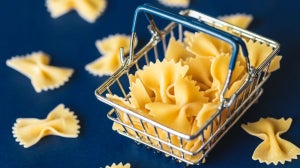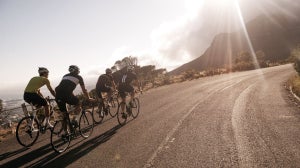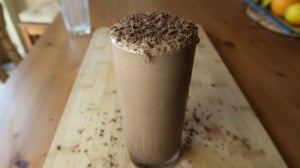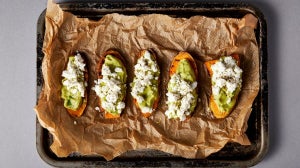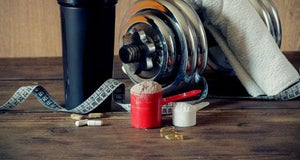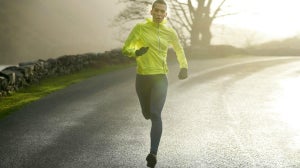
Carbloading is a strategy employed by both first time and pro runners to increase their energy levels on the day of a Marathon/Triatholon. Normally beginning the process prior to the big day, it involves the intake of high carbohydrates to increase their stores of muscle glycogen.
But, before you reach for that pizza – it is important to understand the ins and outs of how it works.
Why is Carb loading useful?
During exercise, the body's primary source of of fuel consists of carbohydrates broken down to produce Adenosine Triphosphate ( ATP); the body’s energy molecule. However, when activities exceed 90 minutes, (e.g. a marathon) muscle glycogen stores become depleted. As a result, the body needs to find an alternative way of providing the energy to fuel vigorous exercise.

By utilising carb-loading, an athlete is able to extend the time that their energy demands are met by carbohydrates – this is achieved by increasing muscle glycogen stores prior to the race.
But what is the best way to achieve this? Here are five tips to help you through your carb-loading phase…
1) When to start Carb-loading
I’m sure many of you have heard of the famous “pasta party” – this is when runners consume vast amounts of carbohydrates the night before a race…but is this the best strategy for your carb-load?

Simply put – no.
It is likely that your carb-loading will be achieved using complex carbs, e.g. – pasta, rice etc. If these are consumed the night before a race, the chances are that the body has been unable to store this as muscle glycogen in time. This will lead to feeling lethargic, heavy and uncomfortable during the race... definitely something to avoid!
A better time to start would be around at least 2-3 days to a week prior to allow maximal muscle glycogen uptake, whilst being a short enough window for the muscle glycogen not to be turned into fat.
2) Carbs - not calories
Increasing your calories will likely lead to unnecessary weight-gain. When you consider VO2 Max (the amount of oxygen effectively used in 1 minute by the body) is measured in litres of oxygen per kilo of bodyweight, per minute - you will appreciate how an increase in weight will cause a decrease in VO2 Max, leading to a reduced aerobic efficiency.
In other words - be sure to increase your carbs, not your calories - unless you want to pile on the pounds!

During the carb-loading phase, your calories should resemble those consumed in previous training weeks. The difference lies in the nutrient intake, making sure 95% of these same calories should come from carbs.
Note: Don't freak out when you do see a slight increase on the scales - each gram of carbohydrate stored retains around three grams of water. See it as a huge positive - it just means extra hydration for your race!
3) Best food for carb-loading
The 2-3 prior to your race could be considered the most important part of your carb-loading process. Emotions running high, and for some - a burden of stress about what to consume to close to the big day.
Keep it simple, honestly. If you are happy with eating pasta, rice, and potatoes until they're brimming out of your ears - go for it!
Just remember: High Carb - low protein and fat. (at this point anyway)
Otherwise, you needn't restrict yourself as much. Opt for easily-digestible carbs for the next few days - and fairly low fibre to reduce chances of stomach issues.
Tip: Eating after your taper runs will allow your muscles to store maximum glycogen for race day.
Just a few examples include:
Breakfasts:
? Yoghurt
? Pancakes
? Pure juices
? Oats
Lunch and Dinner:
? Bread
? Rice
? Peeled white potatoes to reduce fibre intake
? Low-fibre beans

Snacks:
? Cereal bars
? Bananas
? Cookies/oat treats
4) Hydration
Too obvious? Not at all.
Drinking tons of water will obvious help you hydrate before, during and after your race - however, energy gels, istonic sports drinks, sweets etc (previously mentioned) are race-day gold dust and will play a huge part in providing your body with a sufficient fuel to reach the finish line.

I'd highly recommend trying out any of these products before race day to rule out any discomfort that you may have. Worst scenario - you discover mid-race that your energy supply actually slows you down.
Don't try anything new on the day!
5) Night Before and Race Morning
The night before the race... Do I carry on stuffing my face with carbs? Well yes, but not so much of it.
Your night-time meal should preferably be slightly earlier than usual, portioned slightly smaller than normal meals and remain carb heavy.
Avoid heaviness and save your appetite for the morning!

Race morning:
Feeling nice and light? Great! Time for more carbs.
Roughly around three hours before your race starts, (even if it means waking at 4am and heading back to sleep) consume some easy-digested foods, packing in about 140-160g carbs, as a rough estimate.
Tip: Mix some oats, yoghurt and fruit and leave in the fridge overnight for easy consumption the next morning. I also fully recommend packing a bag the night before for ease - Isotonic drinks/gels, water, banana's, etc. - Enjoy!
Isotonic Sports Drink
Our articles should be used for informational and educational purposes only and are not intended to be taken as medical advice. If you're concerned, consult a health professional before taking dietary supplements or introducing any major changes to your diet.

